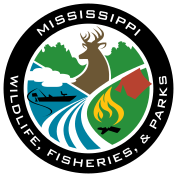
Some species of wildlife, both native and non-native, regularly cause conflicts through their interactions with humans. This may occur around homes and other buildings, gardens, livestock areas, ponds, crops, and gardens. Conflicts can range from mere irritating circumstances to significant property damage. Nuisance animal regulations have been developed to provide homeowners and landowners legal options for management and control of these species.
Any nuisance animal control or management program must begin with an assessment of the conditions that may attract wildlife to a location that develops into a nuisance situation. Wildlife in both rural and suburban areas will utilize food sources, as well as buildings and other physical structures, that are not intended for use by wildlife. Depending on the situation, once wildlife become accustomed to food sources or structures, deterring them may be very difficult or seem impossible. In many cases, a nuisance situation exists due to conditions created by humans.
Some nuisance wildlife situations may be amplified during poor wildlife population health conditions, poor habitat conditions, or during nesting, young rearing, and denning. In other situations, wildlife will merely take advantage of opportunities that exist within their home range. Nuisance animal regulations provide the opportunity for homeowners and landowners to protect their property against nuisance animals and the damage they may cause.
Species
The following species are defined as "nuisance animals" in the State of Mississippi:
- Beaver
- Coyote
- Fox
- Nutria
- Skunk
- Wild hog
Nuisance Animal Technical Guidance
To receive technical guidance and information regarding nuisance animal management and control, you may contact the following agencies:
- USDA Wildlife Services (MS): (662) 325-3014
- MDWFP Wildlife Bureau: (601) 432-2199
- Mississippi State University, Extension Service: Wild Pig Information
Rules & Regulations
License Requirements
Trapping Beaver, Coyote, Fox, Nutria, and Skunk
- A trapping license is required for anyone 16 years of age or older who traps on any land other than their own.
- Persons trapping nuisance animals other than wild hogs must have a valid Mississippi trapping license, unless otherwise exempt.
- It is illegal to trap with the aid of bait, recordings of bird or animal calls, or electrically amplified imitations of calls of any kind. However, lure is allowed for trapping furbearers, beaver, nutria, coyote, skunk, and fox, provided that no more than two and one-half (2.5) cubic inches of such lure is placed or located within twenty (20) feet of any trap. (The lure amount of 2.5 cubic inches is approximately the volume equivalent of a regulation-sized golf ball). All lure within twenty (20) feet of any trap must be covered and not visible from above. However, there are no lure restrictions when used inside live cage-type traps that do not exceed forty-two (42) inches in length, fifteen (15) inches in width, and twenty (20) inches in height.
- Liquid scents may be used.
- All other regulations regarding trapping apply. See Trapping and Fur Dealing Regulations pamphlet for complete regulations, or Miss. Code Ann. §49-7-141.
Other License Requirements
- Residents, unless exempt from purchasing an annual hunting license, must possess an All-Game Hunting License, Sportsman License or Lifetime License while hunting nuisance animals.
- All Non-Residents (NR) sixteen years of age or older hunting nuisance animals must possess a NR-All Game License.
- Either a NR-All Game License, NR 7-Day All Game License in addition to a NR Archery/Primitive Weapon Permit, or a NR 3-Day All Game-Archery/Primitive Weapon License is required for non-residents hunting nuisance animals during any archery/primitive weapon season.
- Persons trapping wild hogs must possess either a valid Lifetime, All Game, Sportsman, or Trapping License, unless otherwise exempt.
Contact Information
MDWFP Regional Offices
North
457 CR 26
Mailing Address:
Box 100
Enid, MS 38927
(662) 563-6222
Central
506 Highway 43 South
Canton, MS 39046
(601) 859-3421
South
1201 N Clark Avenue
Magnolia, MS 39652
(601) 783-2911